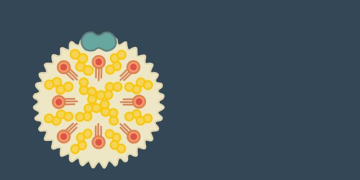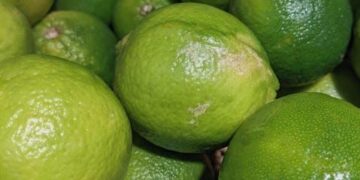Table of Contents
Part I: The Wall – A Story We All Know
My Fifteen-Year Itch: Confessions of a Nutritionist Who Hit the Plateau
For fifteen years, I have lived and breathed nutrition.
I’ve built a career on helping people navigate the labyrinth of dietary advice, guiding them toward their health and weight goals with science-backed plans.
My clients succeeded, their testimonials filled my files, and my professional life was a picture of competence.
But behind the closed door of my own kitchen, I was living a paradox.
I was stuck.
For six agonizing months, the number on my scale was frozen in place.
It was a plateau so stubborn, so unyielding, that it began to mock my professional identity.
I was doing everything “right,” everything I told my clients to do.
I tracked my calories with monastic devotion, ensuring a consistent deficit.1
I balanced my macronutrients—protein, carbohydrates, and fats—with the precision of a chemist.
I intensified my workouts, pushing my body harder, longer.2
Yet, nothing.
The weight I had successfully lost clung to me with a vengeance, and the remaining pounds I wanted to shed seemed like a distant, impossible dream.
The frustration was immense, but it was the insidious creep of self-blame that was truly corrosive.
I, a seasoned nutritionist, felt like a failure.
This experience, I now know, is profoundly common.
Most people who embark on a weight-loss journey will eventually hit this wall, a point where their initial, often rapid, progress grinds to a halt.3
The science I understood at the time offered a logical, albeit disheartening, explanation.
As you lose weight, your body, a marvel of evolutionary engineering designed to survive famine, fights back.
Your metabolism slows down.
This isn’t a myth; it’s a well-documented phenomenon called “adaptive thermogenesis”.4
As your body mass decreases, your basal metabolic rate (BMR)—the energy you burn just to stay alive—naturally drops.7
The 150-pound version of you simply requires fewer calories to exist than the 200-pound version did.
That calorie deficit you so carefully calculated at the start of your journey shrinks, and eventually, the calories you eat equal the calories you burn.
You’ve reached equilibrium.
You’ve reached a plateau.3
But there’s a more visceral, psychological dimension to this battle.
Your body doesn’t just quietly lower its energy expenditure; it launches a full-scale hormonal rebellion.
Levels of leptin, the hormone that signals fullness and satiety, plummet with fat loss.
Simultaneously, levels of ghrelin, the “hunger hormone” that drives appetite, skyrocket.4
The result is a perfect storm of biological signals screaming at your brain to eat more and move less.
You feel hungrier, more tired, and increasingly irritable.4
It’s a physiological response, but we internalize it as a personal failing—a lack of willpower, a lapse in discipline.9
We feel defeated not because we are weak, but because our own biology is waging a powerful campaign against our goals.
This understanding was my first step toward freedom: recognizing the plateau not as a sign of failure, but as a biological signal that my current strategy, however logical, was incomplete.
The Orchestra Analogy: Why “Calories In, Calories Out” Is Just Noise
For years, my approach to nutrition, and the one I preached, was centered on the big players: macronutrients.
I thought of them as the primary sections of a grand metabolic orchestra.
Carbohydrates were the booming brass section, providing quick energy.
Proteins were the driving percussion, building and repairing tissue.
Fats were the rich, foundational woodwinds, essential for hormones and long-term energy.
The prevailing wisdom was simple: manage the volume and balance of these sections—count your macros, control your calories—and you’ll create a symphony of weight loss.11
But my own stubborn plateau proved this model was flawed.
My orchestra was playing all the right notes, in the right amounts, yet the result wasn’t a beautiful melody of progress.
It was just noise.
The frustration drove me back to the most fundamental biochemical textbooks, to the fringes of nutritional science, searching for what I had missed.
And then, one late night, surrounded by research papers, I had my epiphany.
An orchestra, no matter how talented its musicians, is just a chaotic cacophony without its conductor.
The most powerful force on the stage isn’t the loudest trumpet or the biggest drum; it’s the silent, graceful movement of the conductor’s baton, which dictates the tempo, synchronizes the sections, and transforms noise into Music.
I realized that in our metabolism, the macronutrients are indeed the instruments.
But the conductors are the micronutrients—the vitamins and minerals we so often overlook.
They don’t provide the raw energy (the calories), but they direct every single aspect of how that energy is used, stored, and mobilized.
They tell the fat cells when to release their stores, they signal the muscles to burn fuel, and they command the hormones to maintain balance.
And in the vast, complex orchestra of weight management, one of the most critical conductors is a humble, often forgotten mineral: zinc.
My focus had been entirely on the instruments, while the conductor’s podium was empty.
Part II: The Epiphany – Shifting Focus from the Big to the Small
The Paradox of Modern Dieting: Overfed but Undernourished
My epiphany about zinc threw the entire paradigm of modern dieting into sharp relief.
Most weight-loss plans are built on a foundation of restriction.
They are defined by what they take away: calories, carbohydrates, fats, or entire food groups.12
While this can create the necessary energy deficit for initial weight loss, it harbors a critical, often fatal, flaw.
By focusing solely on what to
remove, these diets frequently lead to a paradoxical state: being overfed in terms of energy but profoundly undernourished in terms of the essential micronutrients that run our metabolic machinery.11
This isn’t just a theoretical problem.
Rigorous analyses of popular commercial diet plans have repeatedly shown that they can fail to provide the recommended daily intake of numerous essential vitamins and minerals.
Studies have found that high-fat, low-carb diets like Atkins can be deficient in thiamine, folic acid, vitamin C, iron, and magnesium.
Even balanced-nutrient plans like Weight Watchers have been found to fall short on vitamin B12, calcium, and zinc.
Vegan weight-loss plans, while often rich in some nutrients, can be low in B12, vitamin D, calcium, and, once again, zinc.13
This creates a dangerous cycle.
A person begins a diet because they are overweight, a condition that is itself often linked to a poor-quality diet high in processed, nutrient-poor foods and thus a higher prevalence of micronutrient deficiencies.14
The restrictive diet they adopt, by cutting calories and eliminating food groups, can inadvertently worsen these pre-existing deficiencies.
This growing lack of essential micronutrients then begins to impair the very metabolic processes required for continued fat loss—like insulin signaling and thyroid function—leading directly to a weight-loss plateau.
Frustrated by the lack of progress, the dieter might restrict their intake even further, digging themselves into a deeper nutritional hole and cementing the plateau in place.
This reveals a fundamental flaw in the macro-centric dieting world: you can’t build a healthy body by starving it of its most essential tools.
Discovering the Conductor: The Hidden Link Between Body Fat and Low Zinc
As I delved deeper into the research, the connection became undeniable.
A vast body of scientific literature reveals a strong, consistent, and troubling correlation: individuals with obesity have, on average, significantly lower concentrations of zinc in their blood compared to their normal-weight counterparts.16
This is not a mere coincidence or a simple case of poor dietary choices, though that is a contributing factor.19
The link is more insidious.
Adipose (fat) tissue is not just a passive storage container for excess calories.
It is a highly active endocrine organ.
In a state of obesity, hypertrophied fat cells release a cascade of inflammatory signals, creating a state of chronic, low-grade inflammation throughout the body.20
This inflammatory environment fundamentally alters how the body handles zinc.
It can trigger changes in zinc transporter proteins, effectively sequestering the mineral and altering its distribution, making it less available for critical metabolic functions.16
This discovery was the final, clarifying piece of the puzzle.
It framed the central question that my epiphany had finally answered.
Could my own stalled progress, and that of countless clients and dieters worldwide, be due not to a failure of our willpower or our macronutrient strategy, but to a functional deficiency in the very mineral needed to conduct the entire metabolic orchestra? The evidence was pointing to a resounding “yes.” The conductor had been missing, and it was time to invite him back to the podium.
Part III: The Science of the Baton – Zinc’s Four-Part Harmony in Weight Management
Understanding that zinc was the missing piece was one thing; understanding how it worked was another.
Zinc doesn’t just play one role; it conducts a four-part harmony, a symphony of metabolic actions that are essential for breaking through a weight-loss plateau.
Each movement addresses a key biological hurdle that causes weight loss to stall.
Movement 1: The Insulin Synchronizer
In the orchestra of metabolism, insulin is the master hormone of energy storage.
When insulin levels are high, it sends a loud, clear signal to the body: “Store fat, and stop burning what you already have.” For anyone trying to lose weight, particularly for breaking a stubborn plateau, improving the body’s sensitivity to insulin is non-negotiable.
This is where zinc takes center stage.
Zinc is intimately involved in every single stage of insulin’s life cycle, from its creation to its action.22
- Synthesis and Storage: Inside the specialized beta-cells of the pancreas, zinc is an absolute requirement. It acts like a molecular scaffold, helping the precursor molecule, proinsulin, to fold correctly and then enabling multiple insulin molecules to crystallize together into a stable hexameric structure. This process, facilitated by a specific zinc transporter protein called ZnT8, is essential for safely storing insulin in granules, ready for release.23 Without enough zinc, the pancreas struggles to produce and store insulin efficiently.
- Secretion and Signaling: When you eat carbohydrates, your blood sugar rises, signaling the pancreas to release insulin. Zinc deficiency can impair this process, leading to a sluggish and inadequate insulin response.22 Furthermore, once insulin is in the bloodstream, zinc helps it perform its job. It plays a role in how insulin binds to its receptors on muscle and fat cells and is critical for activating the downstream signaling cascades (like the PI3K/Akt pathway) that command the cell to open its gates and absorb glucose from the blood.24
By improving insulin synthesis, secretion, and sensitivity, zinc helps to lower circulating insulin levels, reduce insulin resistance, and shift the body’s metabolic state from fat storage to fat burning.
The evidence for this is compelling.
A landmark randomized, double-blind clinical trial published in Diabetology & Metabolic Syndrome studied obese individuals on a calorie-restricted diet.
The group that received 30 mg of zinc supplementation per day experienced significantly greater reductions in body weight, BMI, and waist circumference compared to the placebo group.
Crucially, they also showed significant improvements in insulin resistance, as measured by the HOMA-IR index.26
Zinc wasn’t just helping them lose weight; it was fixing the underlying metabolic dysfunction.
Movement 2: The Appetite Maestro
One of the most challenging parts of a weight-loss plateau is the psychological battle against relentless hunger and cravings.
We are taught to see this as a failure of willpower, but it’s a biochemical reality driven by hormones.
Zinc acts as a maestro, helping to regulate the key players in appetite control.
Its relationship with the primary appetite hormones, leptin and ghrelin, is complex.
While human studies on zinc supplementation’s direct effect on circulating leptin levels have been mixed 27, animal research provides a fascinating glimpse into its importance.
In obese mice, zinc deficiency was shown to create a state of “leptin resistance.” It actually increased circulating leptin levels while simultaneously promoting the infiltration of inflammatory macrophages into fat tissue.29
This suggests that a lack of zinc creates a dysfunctional environment where the “I’m full” signal from leptin is present but is not being heard properly by the brain, a hallmark of obesity.
Zinc’s influence extends to the brain itself.
It is a required cofactor for the synthesis of serotonin, a critical neurotransmitter that, among its many roles, promotes feelings of satiety and helps reduce food intake.30
It’s no surprise that zinc deficiency is clinically associated with profound disturbances in appetite and taste, from the complete loss of appetite seen in anorexia nervosa to more subtle impairments in the senses of taste and smell that can alter our relationship with food.31
Once again, the clinical evidence provides a direct link.
The same study that demonstrated zinc’s benefits for weight loss and insulin resistance also found that the participants taking zinc reported a significantly lower appetite score compared to the placebo group.26
They didn’t just lose more weight; they felt less hungry while doing it.
Movement 3: The Metabolic Tempo-Setter
If insulin is the master of storage, the thyroid gland is the master of speed.
It is the body’s metabolic thermostat, producing hormones that set the tempo for your basal metabolic rate (BMR)—the number of calories your body burns at rest.34
A sluggish thyroid, or hypothyroidism, is a common and potent cause of a stalled metabolism and weight gain.
The relationship between zinc and thyroid function is a critical, and often vicious, two-way street.
- Zinc is essential for thyroid hormone production. The brain produces thyrotropin-releasing hormone (TRH), which tells the pituitary to release thyroid-stimulating hormone (TSH). TSH then tells the thyroid to produce its hormones, primarily thyroxine (T4). Zinc is required for the synthesis of both TRH and TSH.34
- Zinc is essential for thyroid hormone activation. The main thyroid hormone, T4, is largely inactive. It must be converted in the peripheral tissues (like the liver and kidneys) into the much more potent, active form, triiodothyronine (T3). This conversion is carried out by enzymes called deiodinases, and zinc is a crucial cofactor for their function.34 A lack of zinc means less active
T3, which means a slower metabolism.
Here is the trap: just as zinc deficiency can lead to hypothyroidism, the reverse is also true.
Thyroid hormones are essential for the proper absorption of zinc from the gut.
Therefore, an underactive thyroid can cause an acquired zinc deficiency.35
This creates a self-perpetuating metabolic downturn: low thyroid function reduces zinc absorption, and the resulting lower zinc status further impairs thyroid function.
It’s a classic catch-22 that can keep a person’s metabolism stuck in a low gear, making weight loss feel impossible without addressing the root nutrient deficiency.
Movement 4: The Inflammation Soother
The modern understanding of obesity has shifted dramatically.
We now recognize it not just as an energy imbalance, but as a state of chronic, low-grade inflammation.
Think of it as a low-level, smoldering fire throughout the body.
This fire is fueled by pro-inflammatory signals released from enlarged fat cells and contributes directly to the development of insulin resistance and the host of metabolic diseases associated with obesity.20
Zinc acts as a potent firefighter in this inflammatory environment.
It is a powerful antioxidant and anti-inflammatory agent with multiple lines of defense.
- Antioxidant Defense: Zinc is a structural component of one of the body’s most important antioxidant enzymes, copper-zinc superoxide dismutase (SOD1). This enzyme is a primary scavenger of damaging free radicals, protecting cells from the oxidative stress that is rampant in obesity.20
- Redox Signaling: Beyond its role in enzymes, zinc helps regulate the complex network of redox signaling, maintaining cellular balance and preventing the overproduction of inflammatory molecules.20
This anti-inflammatory action is not just theoretical.
It is perhaps one of the most striking findings from clinical research.
In the pivotal trial on obese individuals, zinc supplementation led to a dramatic and highly significant reduction in levels of high-sensitivity C-reactive protein (hs-CRP), the gold-standard blood marker for systemic inflammation.26
This demonstrates that zinc doesn’t just tweak individual pathways; it improves the health of the entire metabolic
environment, extinguishing the inflammatory fire that drives metabolic dysfunction and sabotages weight loss efforts.
| The Mechanism (The “Movement”) | How Zinc Acts (The Conductor’s Action) | The Result for Weight Loss (The Harmony) | Key Evidence |
| Insulin Synchronization | Essential for insulin synthesis, storage (via ZnT8), and secretion. Improves cell sensitivity to insulin by activating key signaling pathways (PI3K/Akt). | Reduced fat storage, increased fat burning, stable blood sugar, and diminished cravings. | 24 |
| Appetite Regulation | Influences leptin signaling and may combat leptin resistance. Required for the synthesis of the satiety neurotransmitter, serotonin. | Reduced cravings, better appetite control, and an increased feeling of fullness. | 26 |
| Metabolic Tempo-Setting (Thyroid) | Required for the synthesis of thyroid-releasing hormone (TRH) and thyroid-stimulating hormone (TSH). Acts as a cofactor for the conversion of inactive T4 to active T3. | Helps maintain or boost the body’s resting metabolic rate (BMR), preventing the metabolic slowdown associated with dieting. | 34 |
| Inflammation Soothing | Acts as a powerful antioxidant (component of SOD1) and reduces key inflammatory markers like high-sensitivity C-reactive protein (hs-CRP). | Reduces the systemic, low-grade inflammation that drives insulin resistance and metabolic damage in obesity, improving overall metabolic health. | 20 |
Part IV: The Practical Playbook – Putting Zinc to Work for You
Understanding the science is the first step.
Turning that knowledge into action is what creates real change.
This section is your practical guide to ensuring your metabolic orchestra has its conductor, moving from the “why” to the “how.”
Stocking Your Pantry: A Comprehensive Food Guide
The best and safest strategy for optimizing your nutrient status is always the “food first” philosophy.
Before reaching for a supplement bottle, focus on building a diet rich in whole, unprocessed, zinc-abundant foods.
- For Omnivores: Animal products are among the most potent and bioavailable sources of zinc. The top contenders include oysters (the undisputed champion), beef, crab, lobster, pork, and dark-meat poultry.31
- For Vegetarians and Vegans: Plant-based eaters have a wealth of options, but they need to be more strategic. Excellent sources include legumes (lentils, chickpeas, beans), seeds (hemp, pumpkin, sesame), nuts (cashews), and whole grains (oats, quinoa), as well as tofu, tempeh, and fortified breakfast cereals.39
However, plant-based diets present a unique challenge: phytates.
Phytic acid is a natural compound found in grains, legumes, nuts, and seeds that binds to minerals like zinc, inhibiting their absorption in the gut.39
This is why some guidelines suggest that vegetarians and vegans may need up to 50% more dietary zinc than omnivores.32
Fortunately, simple food preparation techniques, practiced for centuries, can dramatically reduce phytate content and boost zinc bioavailability:
- Soaking: Soaking beans, grains, or raw nuts in water overnight before cooking or eating can help break down phytates.
- Sprouting: Sprouting lentils, chickpeas, or seeds activates enzymes that neutralize phytic acid, unlocking their full mineral potential.
- Fermenting/Leavening: The fermentation process used to make sourdough bread is highly effective at reducing phytates, making the zinc in whole wheat much more available for absorption compared to unleavened whole-grain bread.39
- Pairing: You can also enhance zinc absorption by pairing zinc-rich plant foods with compounds that help keep it soluble. Adding a squeeze of lemon or lime (citric acid) to a lentil soup or bean salad, or cooking with alliums like garlic and onions (which contain sulfur-containing amino acids), can improve the amount of zinc your body takes in.39
| Food Source | Dietary Category | Serving Size | Approx. Zinc (mg) | Pro-Tip for Absorption |
| Oysters, cooked | Omnivore | 3 ounces | 74 | The absolute best source of zinc. |
| Beef Chuck Roast, cooked | Omnivore | 3 ounces | 7 | Choose grass-fed for a better overall nutrient profile. |
| Crab, cooked | Omnivore | 3 ounces | 6.5 | A lean, high-protein source. |
| Hemp Seeds | Vegan | 3 tablespoons | 3 | Excellent source; sprinkle on salads, yogurt, or oatmeal. |
| Pumpkin Seeds, shelled | Vegan | 1 ounce (approx. 1/4 cup) | 2.2 | Roast them to reduce phytates and enhance flavor. |
| Lentils, cooked | Vegan | 1 cup | 2.5 | Soak overnight and pair with a source of vitamin C like lemon juice. |
| Chickpeas, cooked | Vegan | 1 cup | 2.5 | Use in hummus with lemon and tahini (sesame seeds) for a zinc powerhouse. |
| Cashews, raw | Vegan | 1 ounce (approx. 18 nuts) | 1.6 | Soaking raw cashews makes them creamier for sauces and easier to digest. |
| Oats, rolled | Vegan | 1 cup cooked | 2.3 | A fantastic whole-grain source. |
| Tofu, firm | Vegan | 1/2 cup | 2 | Choose organic, non-GMO tofu when possible. |
| Sourdough Whole Wheat Bread | Vegan | 2 slices | ~2 | The leavening process makes zinc more bioavailable than in unleavened bread. |
Navigating the Supplement Aisle: A Professional’s Guide to Zinc Supplementation
While a food-first approach is ideal, there are situations where supplementation is a sensible and effective strategy.
You might consider a supplement if you have a clinically diagnosed deficiency, fall into a high-risk group (such as following a strict vegan diet, having a digestive disorder like Crohn’s disease, or having had bariatric surgery), or are working with a healthcare professional to break a long-standing metabolic plateau.31
Common symptoms of zinc deficiency include frequent infections, hair loss, diarrhea, slow wound healing, and a poor sense of taste or smell.31
However, the supplement aisle can be a confusing place.
Not all zinc supplements are created equal.
The chemical form of the mineral is critically important for its bioavailability—how well your body can absorb and use it.
- Decoding the Label: Choosing the Right Form
The research is clear: organic or “chelated” forms of zinc, where the mineral is bound to an amino acid or organic acid, are generally better absorbed than inorganic forms.
- The Best Choices: Look for Zinc Bisglycinate, Zinc Picolinate, Zinc Gluconate, or Zinc Citrate. Studies consistently show these forms have superior absorption rates.46 Zinc bisglycinate, in particular, has shown excellent bioavailability in several studies, as it is absorbed via amino acid pathways, bypassing competition with other minerals.51
- The One to Avoid: Zinc Oxide is a common and inexpensive form found in many multivitamins and sunscreens. However, it is an inorganic salt that is insoluble in water and has consistently demonstrated poor bioavailability in human studies. It is not an effective choice for correcting a deficiency or for therapeutic use.46
- Dosage, Safety, and Timing
- Dosage: The standard Recommended Dietary Intake (RDI) for adults is 14 mg per day for men and 8 mg for women.32 The successful clinical trial that demonstrated weight loss and metabolic benefits used a therapeutic dose of 30 mg per day.26 This is a reasonable target for short-term therapeutic use under professional guidance.
- Safety First: It is crucial not to exceed the Tolerable Upper Intake Level (UL) of 40 mg per day from all sources (food and supplements) for long-term use without medical supervision.32
- Side Effects and Toxicity: High doses of zinc can cause acute side effects like nausea, vomiting, stomach cramps, and headaches.45 The most significant risk of long-term high-dose supplementation (typically >50-60 mg/day) is inducing a
copper deficiency. Zinc competes with copper for absorption, and excessive zinc intake can lead to low copper levels, which can cause neurological problems and anemia.44 This is why some high-dose zinc supplements include a small amount of copper. - Drug Interactions: Zinc can interfere with the absorption of certain medications. It is known to reduce the effectiveness of quinolone and tetracycline antibiotics. To avoid this, take the antibiotic at least 2 hours before or 4-6 hours after your zinc supplement. It can also interact with the rheumatoid arthritis drug penicillamine and may be affected by long-term use of thiazide diuretics.53 Always consult your doctor or pharmacist about potential interactions.
| Form of Zinc | Bioavailability Rating | Pros | Cons | Best For… |
| Zinc Oxide | Poor | Inexpensive; high elemental zinc content (80%). | Very poorly absorbed; not effective for correcting deficiency. | Not recommended for internal supplementation. Good for topical use (sunscreen). |
| Zinc Sulfate | Moderate | Inexpensive; water-soluble; recommended by WHO for certain applications. | Can have a strong metallic taste; may cause stomach upset. | Short-term use in liquid preparations (if taste is masked). |
| Zinc Citrate | Good | Well-absorbed (comparable to gluconate); good taste profile; high zinc content (31%). | Slightly less studied than gluconate or picolinate. | General supplementation, especially in chewable or liquid forms due to neutral taste. |
| Zinc Gluconate | Good | Well-absorbed; extensively studied; widely available. | Lower elemental zinc content (14%); can have a slight taste. | A reliable and well-researched option for general use and immune support. |
| Zinc Picolinate | Excellent | Some studies show superior absorption over citrate and gluconate due to the picolinic acid chelate. | Can be more expensive. | Individuals seeking to maximize absorption, particularly for correcting a known deficiency. |
| Zinc Bisglycinate | Excellent | Often considered the best-absorbed form; gentle on the stomach as it’s absorbed like an amino acid, avoiding mineral competition. | Typically the most expensive form. | Anyone with a sensitive stomach or concerns about mineral competition; maximizing absorption. |
Part V: The Encore – From a Single Mineral to a Symphony of Health
Beyond Zinc: The Dawn of Personalized Nutrition
My journey into the world of zinc was a personal and professional revelation.
It taught me that the most stubborn plateaus often hide a deeper, more subtle imbalance.
But the story doesn’t end with a single mineral.
Zinc is a powerful example, a lead violinist, but the true future of health and weight management lies in understanding and conducting the entire, unique orchestra that is you.
This is the dawn of personalized nutrition.
The very factors that make zinc’s role so nuanced are the same factors that are shaping this new frontier.
We are not all the same.
Our genetics play a profound role; for instance, common variations in the SLC30A8 gene, which codes for that critical ZnT8 zinc transporter in the pancreas, can influence how effectively an individual uses zinc to manage insulin secretion and affect their risk for type 2 diabetes.23
Our gut microbiome, the trillions of bacteria living in our digestive tract, is another key player, profoundly influencing how we absorb and utilize nutrients from our food.59
For decades, nutrition advice has been one-size-fits-all.
But we are moving rapidly toward an era where dietary recommendations will be tailored to our individual biology.
The convergence of artificial intelligence (AI), at-home genetic and microbiome testing, and wearable technology is making this possible.60
AI algorithms can now analyze vast datasets—your genetic predispositions, your gut bacteria composition, your real-time blood glucose response to meals—to provide dietary recommendations with a level of precision that was once the stuff of science fiction.59
The future isn’t about finding the one “perfect diet” for everyone, but about finding the perfect diet for
you.
Your Next Steps: Becoming the Conductor of Your Own Orchestra
My plateau wasn’t a failure; it was a message.
My body was sending me feedback, telling me that my approach was incomplete.
The most empowering thing you can do is learn to listen to the music your own body is playing and become the conductor of your own health orchestra.
The goal is not just to blindly supplement with zinc, but to adopt a new, more nuanced philosophy of health.
Here are your first steps on that journey:
- Re-evaluate Your Diet with a New Lens. Look beyond calories and macros. Is your plate a vibrant, diverse collection of whole foods? Are you eating a rainbow of fruits and vegetables, ensuring a rich supply of not just zinc, but all the micronutrient conductors your body needs?
- Consider Your Zinc Status. Review the risk factors. Are you a vegan? Do you have a digestive condition? Look at the symptoms. Do you get sick often? Is your hair thinning? This isn’t for self-diagnosis, but to raise your awareness.
- Get Tested, Don’t Guess. If you suspect a deficiency, the only way to know for sure is to get tested. Work with a qualified healthcare professional who can order a plasma zinc test and help you interpret the results in the context of your overall health.
- Supplement Smartly. If you and your provider decide supplementation is right for you, invest in a high-quality, bioavailable form. Respect the dosage guidelines and be mindful of the 40 mg/day upper limit for long-term use. Remember, more is not always better.
- Stay Curious. Above all, approach your health with curiosity, not judgment. See a plateau not as a wall, but as a doorway to a deeper understanding of your own unique biology. You have the power to move beyond the simplistic noise of “calories in, calories out” and begin conducting your own beautiful, healthy symphony.
Works cited
- Counting calories: Get back to weight-loss basics – Mayo Clinic, accessed on August 4, 2025, https://www.mayoclinic.org/healthy-lifestyle/weight-loss/in-depth/calories/art-20048065
- 4 ways to beat a weight loss plateau | MD Anderson Cancer Center, accessed on August 4, 2025, https://www.mdanderson.org/publications/focused-on-health/4-ways-to-beat-weight-loss-plateau.h16Z1591413.html
- Getting past a weight-loss plateau – Mayo Clinic, accessed on August 4, 2025, https://www.mayoclinic.org/healthy-lifestyle/weight-loss/in-depth/weight-loss-plateau/art-20044615
- Management of Weight Loss Plateau – StatPearls – NCBI Bookshelf, accessed on August 4, 2025, https://www.ncbi.nlm.nih.gov/books/NBK576400/
- What Is a Weight Loss Plateau? – WebMD, accessed on August 4, 2025, https://www.webmd.com/obesity/weight-loss-plateau
- The Science of Weight Loss Plateaus: How to Break Through and Keep Progressing, accessed on August 4, 2025, https://transitionsalem.com/the-science-of-weight-loss-plateaus-how-to-break-through-and-keep-progressing/
- Weight Loss Plateaus & Strategies to Overcome Them – NASM Blog, accessed on August 4, 2025, https://blog.nasm.org/fitness/weight-loss-plateaus
- So You Hit a Weight Loss Plateau. Here’s Why. – Unlocking Insights – Explore Our Articles, accessed on August 4, 2025, https://www.insidetracker.com/a/articles/so-you-hit-a-weight-loss-plateau-heres-why
- Weight loss plateau: Why it happens and how to overcome it | Withings, accessed on August 4, 2025, https://www.withings.com/us/en/health-insights/about-weight-plateaus
- Management of Weight Loss Plateau – PubMed, accessed on August 4, 2025, https://pubmed.ncbi.nlm.nih.gov/35015425/
- Micros vs. Macros: What They Are, Diets, and More – Healthline, accessed on August 4, 2025, https://www.healthline.com/health/food-nutrition/micros-vs-macros
- Why Are Most Traditional Weight Loss Methods Ineffective? – Bethesda MD – Simply Slim, accessed on August 4, 2025, https://simply-slim.com/traditional-weight-loss-methods-ineffective/
- Micronutrient quality of weight-loss diets that focus on macronutrients: results from the A TO Z study1, accessed on August 4, 2025, https://pmc.ncbi.nlm.nih.gov/articles/PMC2904033/
- Full article: Obesity and micronutrients deficit, when and how to suplement, accessed on August 4, 2025, https://www.tandfonline.com/doi/full/10.1080/09540105.2024.2381725
- Micronutrient Gaps in Three Commercial Weight-Loss Diet Plans – PMC, accessed on August 4, 2025, https://pmc.ncbi.nlm.nih.gov/articles/PMC5793336/
- Zinc Supplementation and Body Weight: A Systematic Review and Dose–Response Meta-analysis of Randomized Controlled Trials, accessed on August 4, 2025, https://pmc.ncbi.nlm.nih.gov/articles/PMC7442320/
- The effect of zinc supplementation on body composition and hormone levels related to adiposity among children: a systematic review – PubMed Central, accessed on August 4, 2025, https://pmc.ncbi.nlm.nih.gov/articles/PMC10270907/
- www.frontiersin.org, accessed on August 4, 2025, https://www.frontiersin.org/journals/pharmacology/articles/10.3389/fphar.2025.1543166/full#:~:text=Multiple%20studies%20have%20demonstrated%20that,et%20al.%2C%202020a).
- Zinc Deficiency Augments Leptin Production and Exacerbates Macrophage Infiltration into Adipose Tissue in Mice Fed a High-Fat Diet – PubMed Central, accessed on August 4, 2025, https://pmc.ncbi.nlm.nih.gov/articles/PMC3681543/
- Zinc homeostasis and redox alterations in obesity – Frontiers, accessed on August 4, 2025, https://www.frontiersin.org/journals/endocrinology/articles/10.3389/fendo.2023.1273177/full
- Zinc homeostasis and redox alterations in obesity – PMC – PubMed Central, accessed on August 4, 2025, https://pmc.ncbi.nlm.nih.gov/articles/PMC10800374/
- Zinc and Diabetes: A Connection between Micronutrient and Metabolism, accessed on August 4, 2025, https://scholarworks.utrgv.edu/som_pub/1576/
- Trait: Zinc and insulin secretion (SLC30A8) | FitnessGenes®, accessed on August 4, 2025, https://www.fitnessgenes.com/blog/trait104-zinc-and-insulin-secretion-slc30a8
- Zinc and Diabetes: A Connection between Micronutrient and … – MDPI, accessed on August 4, 2025, https://www.mdpi.com/2073-4409/13/16/1359
- Can Zinc Help Manage Diabetes? The Link Between Zinc and Insulin – Genesis Lifestyle Medicine, accessed on August 4, 2025, https://www.genesislifestylemedicine.com/blog/can-zinc-help-manage-diabetes-the-link-between-zinc-and-insulin/
- Zinc supplementation improves body weight management … – PubMed, accessed on August 4, 2025, https://pubmed.ncbi.nlm.nih.gov/31827626/
- Zinc Supplementation Might Not Affect Serum Leptin and Adi- ponectin Levels in Adults, accessed on August 4, 2025, https://ijph.tums.ac.ir/index.php/ijph/article/download/18361/7124/
- Effects of zinc supplementation on serum leptin level and insulin sensitivity in obese people, accessed on August 4, 2025, https://research.monash.edu/en/publications/effects-of-zinc-supplementation-on-serum-leptin-level-and-insulin
- Zinc Deficiency Augments Leptin Production and Exacerbates …, accessed on August 4, 2025, https://www.ncbi.nlm.nih.gov/pmc/articles/PMC3681543/
- pmc.ncbi.nlm.nih.gov, accessed on August 4, 2025, https://pmc.ncbi.nlm.nih.gov/articles/PMC3602991/#:~:text=Zinc%20is%20required%20for%20the,dopamine%20activation%20decreases%20food%20intake.
- Zinc Supplements: Benefits, Dosage, and Side Effects – Healthline, accessed on August 4, 2025, https://www.healthline.com/nutrition/zinc-supplements
- Zinc | Eat For Health, accessed on August 4, 2025, https://www.eatforhealth.gov.au/nutrient-reference-values/nutrients/zinc
- Zinc Supplementation in Anorexia Nervosa – ISOM – International Society for Orthomolecular Medicine, accessed on August 4, 2025, https://isom.ca/article/zinc-supplementation-anorexia-nervosa/
- The Role of Zinc in Thyroid Hormones Metabolism | International Journal for Vitamin and Nutrition Research – Hogrefe eContent, accessed on August 4, 2025, https://econtent.hogrefe.com/doi/10.1024/0300-9831/a000262
- Zinc Deficiency Associated with Hypothyroidism: An Overlooked, accessed on August 4, 2025, https://pmc.ncbi.nlm.nih.gov/articles/PMC3746228/
- pmc.ncbi.nlm.nih.gov, accessed on August 4, 2025, https://pmc.ncbi.nlm.nih.gov/articles/PMC3746228/#:~:text=Zinc%20and%20other%20trace%20elements,result%20in%20acquired%20zinc%20deficiency.
- Zinc Deficiency Associated with Hypothyroidism: An Overlooked …, accessed on August 4, 2025, https://www.ncbi.nlm.nih.gov/pmc/articles/PMC3746228/
- Therapeutic potential of zinc 64Zn aspartate for obesity management: impact on oxidative stress, lipid metabolism, pancreas and liver in high-calorie diet model – Frontiers, accessed on August 4, 2025, https://www.frontiersin.org/journals/pharmacology/articles/10.3389/fphar.2025.1543166/full
- Zinc and vegetarian diets | The Medical Journal of Australia, accessed on August 4, 2025, https://www.mja.com.au/journal/2013/199/4/zinc-and-vegetarian-diets
- Top Zinc-Rich Foods For Vegetarians You Must Try | PharmEasy, accessed on August 4, 2025, https://pharmeasy.in/blog/top-18-zinc-rich-foods-for-vegetarians/
- Vegan Zinc Rich Foods: How to Easily Get Enough – Plant-Based Mavens, accessed on August 4, 2025, https://plantbasedmavens.com/zinc-rich-vegan-foods/
- Zinc | The Vegan Society, accessed on August 4, 2025, https://www.vegansociety.com/resources/nutrition-and-health/nutrients/zinc
- (PDF) Zinc and vegetarian diets – ResearchGate, accessed on August 4, 2025, https://www.researchgate.net/publication/267874636_Zinc_and_vegetarian_diets
- Excessive zinc supplementation can be dangerous to your health – Mather Hospital, accessed on August 4, 2025, https://www.matherhospital.org/related-content/bariatrics/excessive-zinc-supplementation-can-be-dangerous-to-your-health/
- Zinc – StatPearls – NCBI Bookshelf, accessed on August 4, 2025, https://www.ncbi.nlm.nih.gov/books/NBK547698/
- Which Form Of Zinc Is Best Absorbed – Consensus Academic Search Engine, accessed on August 4, 2025, https://consensus.app/questions/which-form-of-zinc-is-best-absorbed/
- Comparative Absorption and Bioavailability of Various Chemical …, accessed on August 4, 2025, https://www.mdpi.com/2072-6643/16/24/4269
- The Best Form of Zinc Supplement for Immune Support – Thorne, accessed on August 4, 2025, https://www.thorne.com/take-5-daily/article/why-zinc-form-matters-for-immune-support
- Zinc Picolinate Vs Zinc Gluconate – Consensus Academic Search Engine, accessed on August 4, 2025, https://consensus.app/questions/zinc-picolinate-vs-zinc-gluconate/
- Zinc Citrate Vs Zinc Gluconate – Consensus Academic Search Engine, accessed on August 4, 2025, https://consensus.app/questions/zinc-citrate-vs-zinc-gluconate/
- Comparison of the Potential Relative Bioaccessibility of Zinc Supplements—In Vitro Studies, accessed on August 4, 2025, https://pmc.ncbi.nlm.nih.gov/articles/PMC10300733/
- A highly bioavailable zinc source in support of human health – Jungbunzlauer, accessed on August 4, 2025, https://www.jungbunzlauer.com/fileadmin/content/_PDF/PRINT_PROJECTS/Article_facts/JBL_AR_A_highly_bioavailable_zinc_source_2020-101_01.pdf
- Zinc – Consumer – NIH Office of Dietary Supplements, accessed on August 4, 2025, https://ods.od.nih.gov/factsheets/Zinc-Consumer/
- www.mayoclinic.org, accessed on August 4, 2025, https://www.mayoclinic.org/drugs-supplements-zinc/art-20366112
- 7 Signs and Symptoms of Zinc Overdose – Healthline, accessed on August 4, 2025, https://www.healthline.com/nutrition/zinc-overdose-symptoms
- Zinc | Linus Pauling Institute | Oregon State University, accessed on August 4, 2025, https://lpi.oregonstate.edu/mic/minerals/zinc
- www.mayoclinic.org, accessed on August 4, 2025, https://www.mayoclinic.org/drugs-supplements-zinc/art-20366112#:~:text=Interactions,antibiotics’%20ability%20to%20fight%20bacteria.
- ZINC: Overview, Uses, Side Effects, Precautions, Interactions, Dosing and Reviews – WebMD, accessed on August 4, 2025, https://www.webmd.com/vitamins/ai/ingredientmono-982/zinc
- The Present and Future of Personalized Nutrition – SciELO México, accessed on August 4, 2025, https://www.scielo.org.mx/scielo.php?script=sci_arttext&pid=S0034-83762021000500321
- Key Strategic Imperatives Shaping the Future of Personalized Nutrition, accessed on August 4, 2025, https://www.frost.com/growth-opportunity-news/chemicals-materials-nutrition/nutrition-wellness/key-strategic-imperatives-shaping-the-future-of-personalized-nutrition-cim-pb/
- Unlocking The Potential of Personalized Nutrition – FutureBridge, accessed on August 4, 2025, https://www.futurebridge.com/article/unlocking-the-potential-of-personalized-nutrition/






